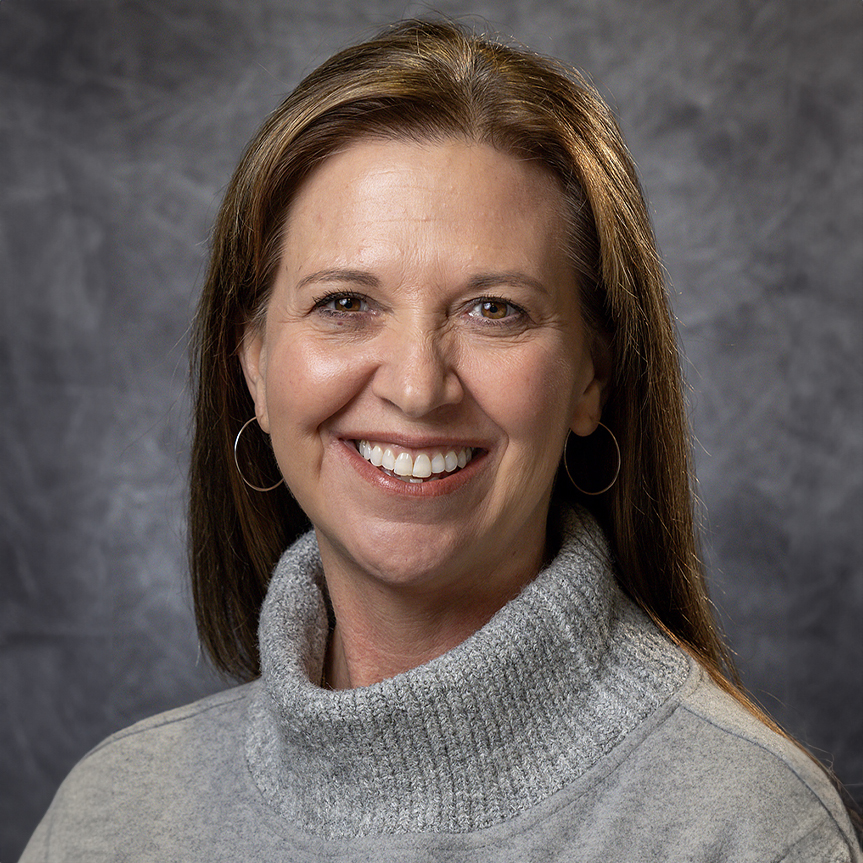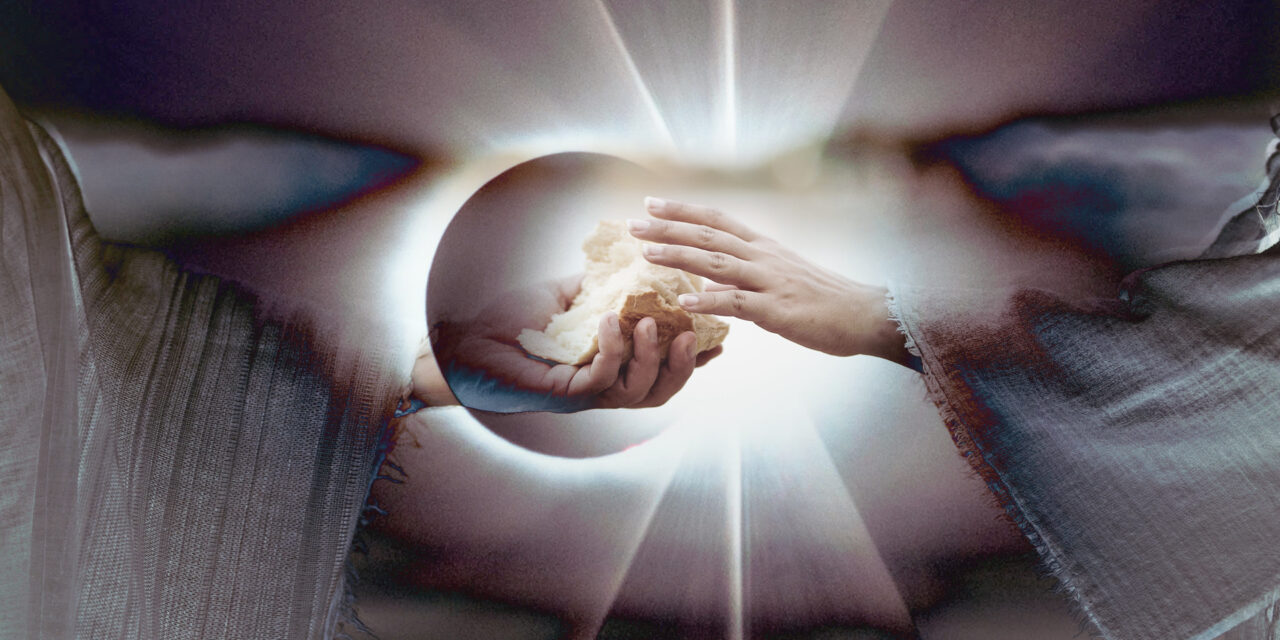By Bishop Kaye Kolde
When I moved into my first apartment after college, I was gifted a bread machine. They were the Instant Pots or air fryers of the mid-90s; they were the appliances that were suddenly a necessity for the home kitchen. In those years of grad school and then early marriage, I could come home from a long day and find a fresh loaf of bread ready to consume. That aroma and warm comfort were so satisfying that the bread made any quick meal better.
Fast-forward to the spring of 2020 and suddenly the same social media accounts that had just been posting pictures of their Whole 30 meals (no carbs) were hashtagging #sourdough in record numbers and showing pictures of their delicious-looking, fresh-baked bread. Sales of yeast grew 647% percent in the week ending March 21, 2021, compared to the same week in 2019, according to Nielsen data. What began as a panic for necessities proved to satisfy a different kind of need. Baking fresh bread was a new way to connect with a practice that required presence and a product that was deliciously comforting to make those uncertain days better.
Jesus, the greatest teacher of all time, knew what He was doing when He used bread as a metaphor. Even though most of our diets are not as dependent on bread as they were for the people in the first century, we can relate to how bread is a life-giving sustenance that satisfies and comforts us physically and emotionally. In John 6, Jesus provides this sustenance for thousands of people who had been following Him to see signs and hear Him speak with authority. He tests His disciples, asking “Where shall we buy bread for these people to eat?” while knowing He would compassionately meet their physical need with miraculous, overflowing abundance.
Temporal or Eternal?
After the people saw the sign Jesus performed, they began to say, “Surely this is the Prophet who is to come into the world.” Jesus, knowing that they intended to come and make him king by force, withdrew again to a mountain by himself. (John 6:14–15)
Even in this response, the people are fixed on their temporal needs, but He wants to teach them their need for something greater than those.
After a time of solitude and prayer, He catches up with His friends, who had already crossed the lake in boats, by walking on water. The crowds are looking for Him.
When they found him on the other side of the lake, they asked him, “Rabbi, when did you get here?”
Jesus answered, “Very truly I tell you, you are looking for me, not because you saw the signs I performed but because you ate the loaves and had your fill. Do not work for food that spoils, but for food that endures to eternal life, which the Son of Man will give you. For on him God the Father has placed his seal of approval. (John 6:25-27)
_
“In a world that never stops changing, Jesus is the same yesterday, today and forever.”
_
When we listen to Jesus in this conversation, we hear Him creating a distinction between what’s temporary and what’s eternal over and over again. It is human nature to go after immediate gratification, to find what can fill us now. Yet, as partakers of the divine nature, we can choose to receive something far greater — the One who truly sustains us. The exhortation is clear for us today: Choose Jesus to satisfy your soul forever.
This provision for our deepest need is supernatural, abundant, and unceasing. It is contentment we can’t find anywhere else. In a world that never stops changing, Jesus is the same yesterday, today and forever. He is that constancy and offers Himself so we can stop endlessly working and grasping for what might fill us.
In seasons of stress or sadness I have turned to comfort food, which tastes like something chocolate for me, or watching some feel-good movie or show. These aren’t necessarily harmful, but they are only briefly or falsely attending to the needs of my soul. We are all prone to turn to things that will never touch our deepest needs, and even worse, our substitutes may bring shame and other destruction.
Miracles or the Miracle-Maker?
The people following Jesus hear Him propose a different way, but they are still looking for the miracle and missing the gift of the Miracle-Maker.
So they asked him, “What sign then will you give that we may see it and believe you? What will you do? Our ancestors ate the manna in the wilderness; as it is written: ‘He gave them bread from heaven to eat.’” (John 6:30–31)
_
“Don’t chase after the works of God, stay close to the Miracle-Worker and see what Jesus will do.”
_
Jesus knows they followed Him because of the signs, but that they weren’t seeking or receiving the spiritual truth the signs represent. In many places in the gospel stories, Jesus calls out the need for signs with disappointment. In John 20, Jesus shows doubting Thomas His nail-scarred hands.
Then Jesus told him, “Because you have seen me, you have believed; blessed are those who have not seen and yet have believed.” (John 20:29)
How quickly do we test Jesus and ask Him to prove Himself to us again, rather than being content to know Him and trust Him? What “food that spoils” have we been focused on, when the invitation is to experience radical life-change by being in relationship with Jesus? Don’t chase after the works of God; stay close to the Miracle-Worker and see what Jesus will do.
Many of us have been raised hearing the saying, “Give a man a fish, and you feed him for a day. Teach a man to fish, and you have fed him for a lifetime.”
According to kingdom values, this statement doesn’t have to be either/or. In this story, we see that Jesus was compassionate to meet their physical need of the moment — as we should be — but He also wants to offer what will satisfy and fill them forever. To be merciful and generous like the Lord, we can feed someone in need of bread and fish, and then teach that person how to experience a different future.
Author and pastor J.D. Walt wrote, “Give a person the answer to their prayer and you help them for a time. Teach a person to abide in Jesus, and you have changed their life forever.”
God’s character is mercy, so He does answer prayers with healings or supernatural provision. Yet He was so committed to creating a different future for us that He sent His Son whose life, death and resurrection offers us filling with His very presence.
The Bread of Life
What we need is the true bread from heaven, and He wants to introduce Himself to everyone.
Then Jesus declared, “I am the bread of life. Whoever comes to me will never go hungry, and whoever believes in me will never be thirsty. But as I told you, you have seen me and still you do not believe.” (John 6:35–36)
_
“Physical hunger is a strong metaphor of the bigger reality of what we were created to need.”
_
When I first believed this, there was true rest and freedom from the bondage of trying to fill up on food, clothing, comfort, toys, physical pleasure, popularity, and human praise. But the question I ask myself (and you) today is this: Are we living in that freedom and proving with our lives and our time that our satisfaction is in Him? Are we witnesses that the words of Psalm 107:9 were fulfilled in Christ: “For he satisfies the longing soul, and the hungry soul he fills with good things” (ESV)?
Many people in this place struggled to provide for their families, and they wanted to fill their stomachs. These were real needs in the physical realm, but Jesus is trying to get them to focus on the spiritual realm, to see a new way. Physical hunger is a strong metaphor of the bigger reality of what we were created to need. We crave all kinds of things because we were made for intimate relationship and community with the Father, Son, and Holy Spirit.
Almost all of us tend to stray and go other places to feed our souls, but we know the truth of the words attributed to St. Augustine: “Our hearts are restless, until they can find rest in you.” Part of choosing Jesus to satisfy our souls forever is prioritizing our lives to be in God’s presence as a lifestyle, to be close to the Miracle-Maker where we will experience His love and power.
Jesus continues to push their understanding by telling them He will be so close that He will be in them and part of them, like the food we consume.
Then the Jews began to argue sharply among themselves, “How can this man give us his flesh to eat?”
Jesus said to them, “Very truly I tell you, unless you eat the flesh of the Son of Man and drink his blood, you have no life in you. Whoever eats my flesh and drinks my blood has eternal life, and I will raise them up at the last day. For my flesh is real food and my blood is real drink. Whoever eats my flesh and drinks my blood remains in me, and I in them. Just as the living Father sent me and I live because of the Father, so the one who feeds on me will live because of me. This is the bread that came down from heaven. Your ancestors ate manna and died, but whoever feeds on this bread will live forever.” He said this while teaching in the synagogue in Capernaum. (John 6:52-59)
On the physical, worldly level, this sounds like cannibalism, but, on the spiritual level, this is abiding relationship and communion. He contrasts the manna they remembered and celebrated with the true bread from heaven by trying to show them the difference between the temporal and the eternal: their ancestors ate the manna and died, it was a temporary fix. Constancy and contentment are received as the Bread of Life; this is Christ in us and us living our lives in Him.
This passage is filled with contrasts such as the temporary and eternal, perishable and imperishable, and now we see the final and most important one to meet the deepest needs of their souls.
On hearing it, many of his disciples said, “This is a hard teaching. Who can accept it?”
Aware that his disciples were grumbling about this, Jesus said to them, “Does this offend you? Then what if you see the Son of Man ascend to where he was before! The Spirit gives life; the flesh counts for nothing. The words I have spoken to you — they are full of the Spirit and life.” (John 6:60–63)
The Living Word, Jesus, fulfills us. His gift of the Spirit is life to us. Church, we need to ask each other: What do you want to get full on?
A constant intake of TikTok videos, our preferred news network, bad relationships, drugs and alcohol, or even Facebook will be like a diet that just makes us weaker and sicker. As we think about all the things we’ve tried to fill up with, may we develop a deep hunger for what Jesus offers. Choose staying close to Him constantly to be filled with the Spirit and life. Choose being with Him constantly, and be witness to the signs of His great love and power.
+

Bishop Kaye Kolde was elected to the Free Methodist Church USA Board of Bishops in 2023 after serving since 2019 as the lead pastor of The Arbor Church in Spring Arbor, Michigan. She has enjoyed coaching for discipleship systems and previously served as the executive pastor of ministry and in other pastoral roles at Sage Hills Church in Wenatchee, Washington. She is married to Dr. David Kolde, and they are the parents of a son, Gray, and a daughter, Emi.











